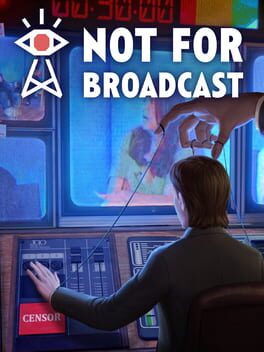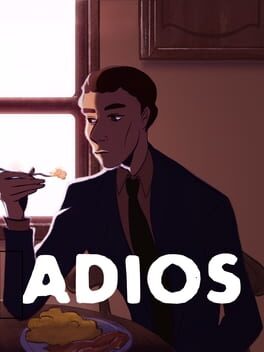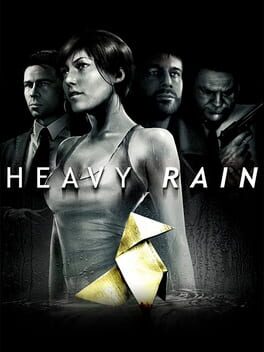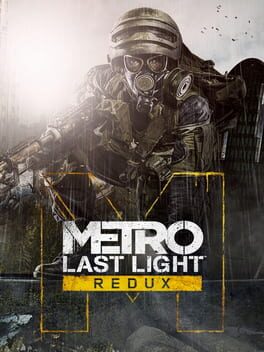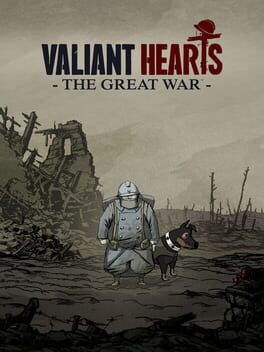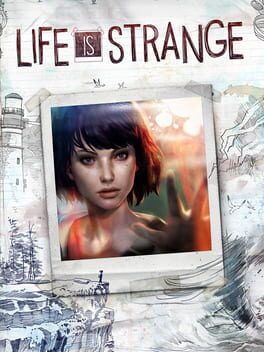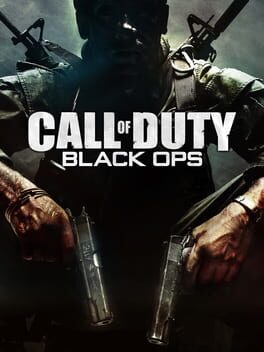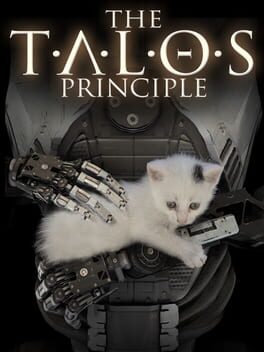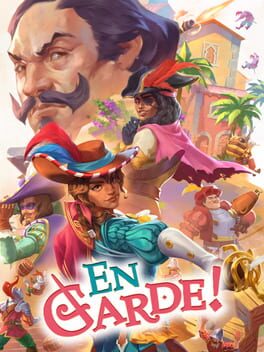macmesa
2022
I usualy don't write about games I haven't finished but I think I played enough of Signalis to where I have qualified myself and i do have opinions.
Signalis has some things to say but the plot and themes feel like they're trying a bit too hard to be vague and shadowy when, at the core of what Signalis is trying to do, is pretty touching. Using motifs of industrialization, automation, and authoritarianism seen from a gritty German aesthetic is quite interesting; using these to tackle a love story is a good idea. Unfortunately, the power a story like that should pack is lost a bit in a haze of ambiguity and I'm left a bit confused and disinterested by the end.
While the thematic elements round out to be a solid attempt at what they were going for from a design perspective the systems in place are a bit of a mess. The culprit here is the inventory system. It's completely unnecessary and poorly implemented. Signalis, like most fruits that fell from the Team Silent tree, has a key fetish; the things are falling out of your pockets. The issue is that the game wants you to engage in combat, going by the abundance of resources for combat such as health and ammunition. With all of these resources on top of the absurd amount of keys, you end up being more frustrated by the commute back to the big red inventory box. This also disincentivizes combat. This endless running around really does suck the tension out of the whole experience. By the end, I had no respect for the enemies or the threat they were meant to pose. Unfortunately, the only thing that did produce even a little tension was the absolutely incredible opening fifteen minutes, which was really good and got me to the seven-hour mark by the power of it alone.
There is something to be said about the audio and visual design which, for the most part, is really good. I think the anime-esque character design is a very questionable choice that, again, serves to zap the experience of seriousness and tension. This is mostly made up for by the awesome environmental design and fairly neat enemy design.
The audio is crisp and generally effective. Some of the industrial clangings can really drone on and become irritating after you get into the habit of just running around enemies rather than just engaging them. Silent Hill 2, for which comparison is inevitable, does this better because silence and variety in sound are much more thoroughly explored while Signalis can be a bit loud at times. However, this can be a plus if you interpret this aspect as more of a play on how repressive the environment is as you're always being watched by some sort of camera which was a cool touch.
Overall, I couldn't really bring myself to see the end. I had pretty much pieced together what happens but couldn't be bothered to sit through the combat, exploration, or key tomfoolery. I did end up googling the ending and I was mostly right.
Can't recommend but I am excited to see what these talented folks have cooking next.
Signalis has some things to say but the plot and themes feel like they're trying a bit too hard to be vague and shadowy when, at the core of what Signalis is trying to do, is pretty touching. Using motifs of industrialization, automation, and authoritarianism seen from a gritty German aesthetic is quite interesting; using these to tackle a love story is a good idea. Unfortunately, the power a story like that should pack is lost a bit in a haze of ambiguity and I'm left a bit confused and disinterested by the end.
While the thematic elements round out to be a solid attempt at what they were going for from a design perspective the systems in place are a bit of a mess. The culprit here is the inventory system. It's completely unnecessary and poorly implemented. Signalis, like most fruits that fell from the Team Silent tree, has a key fetish; the things are falling out of your pockets. The issue is that the game wants you to engage in combat, going by the abundance of resources for combat such as health and ammunition. With all of these resources on top of the absurd amount of keys, you end up being more frustrated by the commute back to the big red inventory box. This also disincentivizes combat. This endless running around really does suck the tension out of the whole experience. By the end, I had no respect for the enemies or the threat they were meant to pose. Unfortunately, the only thing that did produce even a little tension was the absolutely incredible opening fifteen minutes, which was really good and got me to the seven-hour mark by the power of it alone.
There is something to be said about the audio and visual design which, for the most part, is really good. I think the anime-esque character design is a very questionable choice that, again, serves to zap the experience of seriousness and tension. This is mostly made up for by the awesome environmental design and fairly neat enemy design.
The audio is crisp and generally effective. Some of the industrial clangings can really drone on and become irritating after you get into the habit of just running around enemies rather than just engaging them. Silent Hill 2, for which comparison is inevitable, does this better because silence and variety in sound are much more thoroughly explored while Signalis can be a bit loud at times. However, this can be a plus if you interpret this aspect as more of a play on how repressive the environment is as you're always being watched by some sort of camera which was a cool touch.
Overall, I couldn't really bring myself to see the end. I had pretty much pieced together what happens but couldn't be bothered to sit through the combat, exploration, or key tomfoolery. I did end up googling the ending and I was mostly right.
Can't recommend but I am excited to see what these talented folks have cooking next.
2022
A great concept brought down by an inconsistent tone, hit-or-miss improv troupe humor, and despite its short runtime, bloat. There's a reason a Monty Python sketch was only a few minutes long. Imagine if you had to listen to the lumberjack song for 6 hours but while you're listening the Mounties were giving you a lecture about the dangers of collectivization.
2021
I hate to be harsh on something that came from a genuine, human place but Adios is a pretty complete failure. There's not a lot to say other than that this shouldn't be a video game in its current state. Adios being a video game adds nothing to it; It takes away quite a bit as it turns out. The visual ugliness takes the player out of the experience constantly. The inconsistent writing is sometimes cringeworthy. The "game-y" elements are half-hearted at best (why was that fishing thing there to begin with and why did it take what felt like several years to complete). The story is, overall, quite boring but the dialogue has sparks of humanity that keep you invested. The story that's being told holds plenty of merit but despite its short runtime, Aidos was just a waste of a fine premise and ended up being a slog. I hope the team at Mischief continues working because clearly, they've got heart. Just remember why video games are special and don't be afraid to invest in the art form, which you obviously care about.
2010
2010
Alan Wake’s writing is it’s biggest shortcoming. While the B movie style is charming at first, the bloated run time wears down its charm. Alan Wake himself is a highlight as his relatable grouchiness reflects his stressful situation and makes him come off as refreshingly human. This allows an interesting contrast in his interactions with the more eccentric characters. The effect works even more effectively because of his noir like way of speaking. The plot as a whole is not very well done. It gets lost in its attempts to capture the twilight zone magic, coming off more as a convoluted mess rather than a grand conspiracy unfolding. In summation, it’s uninspired and poorly executed. This can not be said of the gameplay which is delightfully tense and has a few neat gimmicks. Again comes the problem of pacing as the games runtime hinders the memorability of sequences as there’s are just so many that are too similar to one another. Where the game really shines is in its audio and visual design. The setting is well realized and the atmosphere is thick because of this. That is what ties Alan Wake together and makes it worth your time.
On the face of it, I assume the worst about Valiant Hearts. I expected a dry, humorless snore. A painful attempt by a young art form to capture one of humanity's bleakest episodes. I was very wrong. Valiant Hearts is a certifiable classic. A touching story of the heartbreak of war contrasted with the innate optimism of our species complimented by a charming, yet simple, art style. This alone satisfies contemporary video game audiences. However, Valiant Hearts completes its vision with some, if not terribly complex, but compelling enough gameplay situations. It's one of the best the medium has to offer.
2007
2015
2019
It's not like these games do anything particularly interesting but this one is worth noting for its cheap, dime-novel plot, which comes out to be surprisingly compelling.
The gameplay does actually have a heaviness to it, complimented by the raw visual design and set pieces. By that I mean the naturalistic set pieces like when you crouch in a trench in South Vietnam and a young man gets blown up not when you jump on a train. Those small moments keep you moving along with the cheap but fun plot.
Not a bad time start to finish.
The gameplay does actually have a heaviness to it, complimented by the raw visual design and set pieces. By that I mean the naturalistic set pieces like when you crouch in a trench in South Vietnam and a young man gets blown up not when you jump on a train. Those small moments keep you moving along with the cheap but fun plot.
Not a bad time start to finish.
2022
I usually can't get excited for visual novels, much for the same reason I can't get behind walking simulators. These are usually games that have a story they want to tell but hardly the inspiration to tell it while accessing what makes video games special; they more often than not abandon the art form and its unique traits in favor of clicking through text or walking from one voice line to the other.
Citizen Sleeper is not what I just described. Not only does Citizen Sleeper have something to say but it says it in a way unique to video games. Gareth Damian Martin and the team at Jump Over the Age told a powerful, human story while engaging the player through intense systems of time and decision management.
These moments where the lives of people around you are in your hands are tense, emotional, and intensely gripping. There are times when real sacrifices are necessary and the game pulls no punches in making you feel left out. That's confidence in design, a virtue often forgotten by contemporary designers. There are some consequences as a result; the game is not replayable because the decision you make feels like yours and not that of some character you are merely embracing for six hours. In TellTale's The Walking Dead, I wanted to see the different outcomes because I wanted to see what happened to Lee and his comrades; in Citizen Sleeper, I do not want to see what happened to my friends because I already saw what happened to them. I felt like that was really me making these real decisions. This is a feat I have yet to witness another game pull off. I believe replayability is an overrated feature anyway but that's usually because I don't have the time or patience to play a game more than once. What Citizen Sleeper does is different in that I feel strange at just the thought of playing it again; it feels disingenuous.
The game is brilliantly written and eloquently designed. I always appreciate a game about something not so grandiose. We've all been put in the shoes of an effortlessly cool hero whose bravery befuddles all that bare witness. That's boring. Citizen Sleeper is a game about people; People not doing very well, they have dreams and flaws, and they get angry, selfish, and sad. They are angry at the systems around them. I'm glad this is being appreciated as it is. I hope there's a time in which game makers can discover the confidence to tell these kinds of stories about their communities and themselves because the product of such courage is remarkable in the case of Citizen Sleeper.
Citizen Sleeper is not what I just described. Not only does Citizen Sleeper have something to say but it says it in a way unique to video games. Gareth Damian Martin and the team at Jump Over the Age told a powerful, human story while engaging the player through intense systems of time and decision management.
These moments where the lives of people around you are in your hands are tense, emotional, and intensely gripping. There are times when real sacrifices are necessary and the game pulls no punches in making you feel left out. That's confidence in design, a virtue often forgotten by contemporary designers. There are some consequences as a result; the game is not replayable because the decision you make feels like yours and not that of some character you are merely embracing for six hours. In TellTale's The Walking Dead, I wanted to see the different outcomes because I wanted to see what happened to Lee and his comrades; in Citizen Sleeper, I do not want to see what happened to my friends because I already saw what happened to them. I felt like that was really me making these real decisions. This is a feat I have yet to witness another game pull off. I believe replayability is an overrated feature anyway but that's usually because I don't have the time or patience to play a game more than once. What Citizen Sleeper does is different in that I feel strange at just the thought of playing it again; it feels disingenuous.
The game is brilliantly written and eloquently designed. I always appreciate a game about something not so grandiose. We've all been put in the shoes of an effortlessly cool hero whose bravery befuddles all that bare witness. That's boring. Citizen Sleeper is a game about people; People not doing very well, they have dreams and flaws, and they get angry, selfish, and sad. They are angry at the systems around them. I'm glad this is being appreciated as it is. I hope there's a time in which game makers can discover the confidence to tell these kinds of stories about their communities and themselves because the product of such courage is remarkable in the case of Citizen Sleeper.
2014
The Talos Principle is one of the better puzzlers on the market. The puzzles are simple, snappy, and fun. The philosophical tint does not live up to its ambition so far but I figured this is one that I'll be playing slowly, for many months. Maybe the layers will reveal themselves later, but now, I'm not convinced of its quality.
2023
While En Garde! is probably enough colorful action fun for most, the janky combat eventually became more frustrating than it was worth while the writing began to wear out its welcome. There is an incredibly solid foundation here with a fun, fast, and satisfying action system but it comes out a little underbaked here. There is no doubt endless potential with the team behind this.

